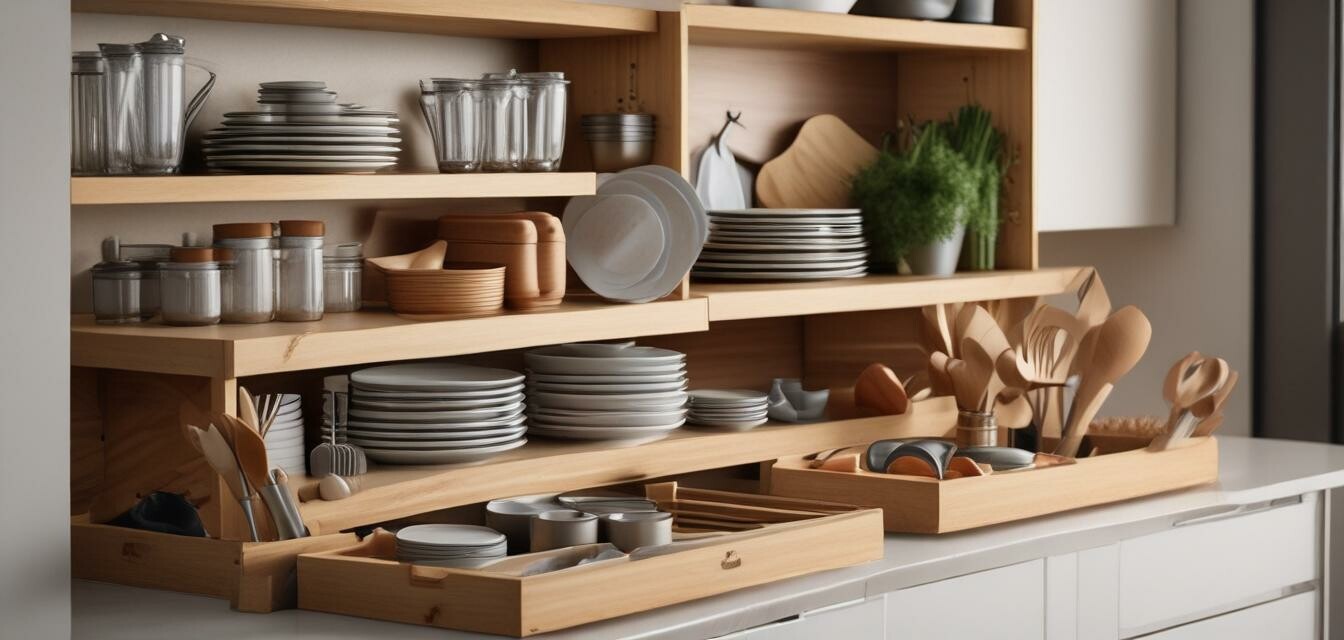
How to Create a Zero-Waste Kitchen
Key Takeaways
- Adopt sustainable alternatives to single-use items.
- Incorporate reusable products to minimize waste.
- Utilize eco-friendly storage solutions to keep your kitchen organized.
- Implement composting and recycling practices.
- Choose energy-efficient appliances to reduce environmental impact.
Creating a zero-waste kitchen is not just a trend; it's a lifestyle choice that helps reduce waste and create a positive impact on the environment. By swapping out disposable products for sustainable alternatives, you can significantly decrease the amount of waste generated in your home. In this article, we will provide practical tips and highlight essential products to transform your kitchen into a zero-waste environment.
Understanding the Zero-Waste Philosophy
The zero-waste philosophy is based on the principle of minimizing waste by re-evaluating our consumption habits. It encourages using products that have a lower environmental impact, which can effectively be integrated into your everyday kitchen use. This approach not only conserves resources but also promotes financial savings in the long run.
Five Steps to Achieve a Zero-Waste Kitchen
- Assess Your Current Waste: Take a week to track your kitchen waste. Identify which items are thrown away regularly.
- Set Clear Goals: Aim to reduce specific types of waste in your kitchen, like plastic or food waste.
- Introduce Reusable Products: Replace single-use items with reusable solutions, such as cloth napkins or stainless steel straws.
- Implement Sustainable Storage: Utilize eco-friendly storage options to organize your pantry and leftovers.
- Compost Your Food Waste: Start composting food scraps to turn waste into valuable soil for your garden.
Essential Zero-Waste Kitchen Products
Transforming your kitchen begins with the right products. Below are some pivotal items to help you move towards a zero-waste kitchen:
| Product Type | Description | Benefits |
|---|---|---|
| Bamboo Kitchenware | Durable utensils, cutting boards, and plates made from sustainable bamboo. | Biodegradable and renewable resource. |
| Compostable Kitchen Tools | Items like utensils and plates that break down naturally. | Reduce landfill waste significantly. |
| Reusable Produce Bags | Washable bags for shopping and storing fruits and vegetables. | Eliminate plastic produce bags. |
| Energy-Efficient Appliances | Appliances designed to use less energy for the same output. | Lower energy bills and reduced environmental footprint. |
| Reusable Silicone Products | Silicone bags and lids to replace single-use plastic wraps. | Versatile and long-lasting solution. |
Choosing Eco-Friendly Storage Solutions
Storage plays a vital role in maintaining a zero-waste kitchen. Opt for options that are not only functional but also environmentally friendly. Consider the following:
- Glass Containers: These are perfect for storing leftovers and are reusable.
- Bamboo or Recycled Material Storage Bins: These bins can keep your kitchen organized without contributing to plastic waste.
- Cloth Bags: Use cloth bags for bulk items or storing grains and pastas.
Composting and Recycling: Making it Easy
Implementing composting can drastically reduce food waste. Follow these steps to create an effective composting system:
- Designate a compost bin in your kitchen.
- Learn what materials can be composted (fruits, vegetables, eggshells, etc.).
- Establish a regular schedule for emptying your compost into an outdoor heap or bin.
Recycling Tips for Your Kitchen
Recycling should be part of your waste management strategy. Here are some efficient recycling practices:
- Label Bins: Clearly label bins for plastics, glass, and paper to streamline recycling.
- Rinse Containers: Clean out food containers to prevent contamination.
- Educate Everyone: Make sure family members understand recycling rules.
Pros and Cons of Living in a Zero-Waste Kitchen
Pros
- Significant reduction in household waste.
- Financial savings over time by buying in bulk and using reusable products.
- Creation of a healthier kitchen environment.
Cons
- Upfront cost of eco-friendly products can be higher.
- Requires consistent effort to maintain a zero-waste lifestyle.
- Limited availability of some sustainable products locally.
Conclusion
Creating a zero-waste kitchen is an achievable goal that can have a lasting positive impact on the planet. By adopting sustainable practices, integrating eco-friendly kitchenware, and minimizing waste, your kitchen can be a shining example of environmental responsibility. For more information on eco-friendly products, check out our Bamboo Kitchenware and Energy-Efficient Appliances. Together, let's embrace a sustainable future!


